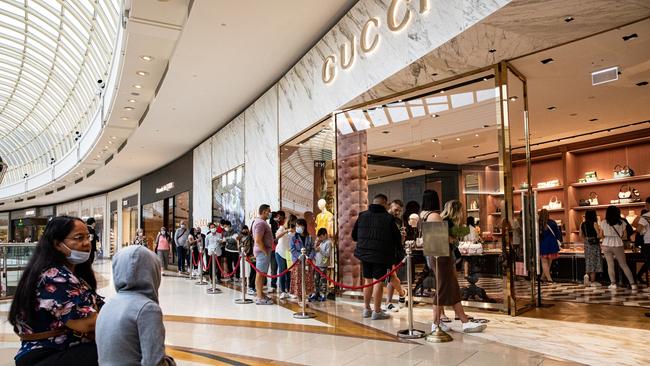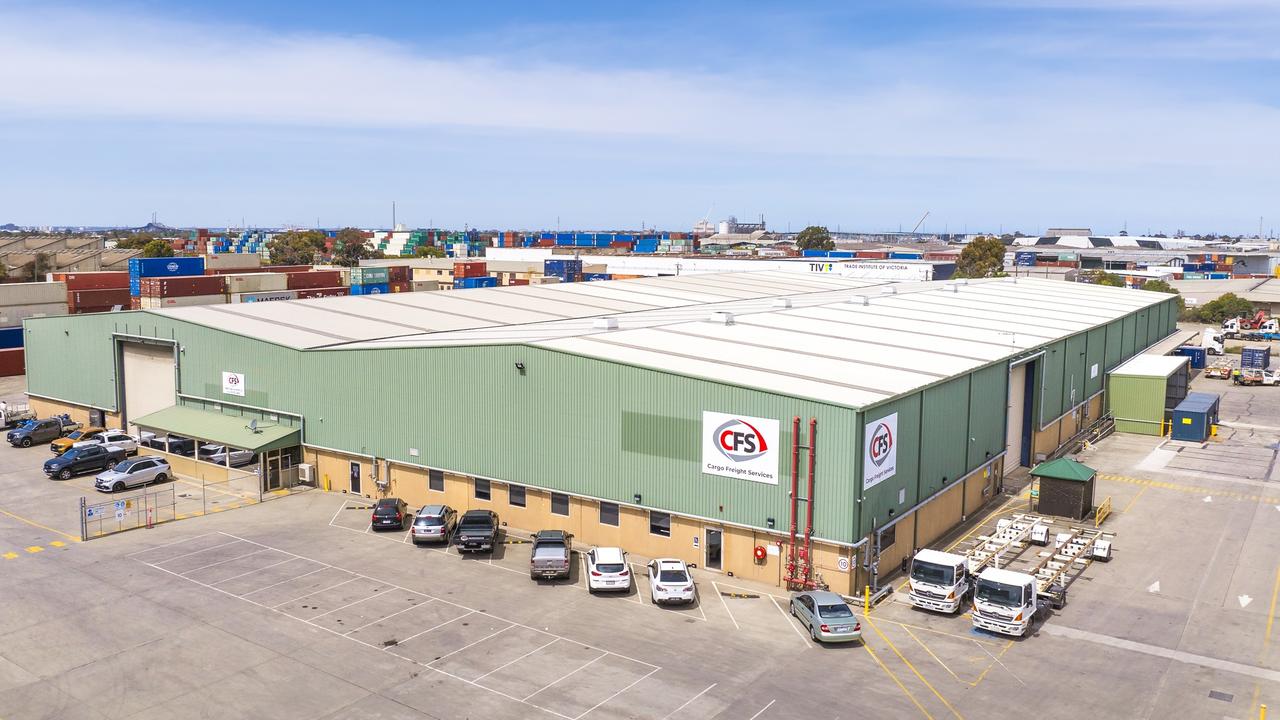Shops bounce back after pandemic but rate rises loom
The part owner of Melbourne’s landmark Chadstone shopping centre has boosted its earnings outlook while a rival has splashed out $180m on property as deals defy the tougher environment.

Shopping centre landlord Vicinity Centres has gone against the grain and upgraded its earnings forecast citing the sustained strength of retail sales and improved negotiation outcomes with retailers, but remains wary about higher interest rates.
Mall owners are expected to come under pressure as rates are lifted, crimping consumer spending on discretionary items. Deal making has also been hampered by rising debt costs which have impacted on larger transactions.
But both income and valuations are rising for now, partly as landlords recoup back rents wracked up during the pandemic. Another landlord, SCA Property, has just bought $180m of smaller centres in what it sees as the most resilient area.
“The updated fiscal 2022 earnings guidance today demonstrates our continued focus on collecting current and overdue rent,” said Vicinity CEO Grant Kelley.
“Furthermore, while we are mindful of the inflationary and rising interest rate environment, we continue to observe favourable trading conditions that support our recovery from the pandemic as well as our long-term growth agenda.”
Vicinity upgraded its full year earnings guidance as well as unveiled positive preliminary asset valuations.
The company, which has a half stake in Melbourne’s landmark Chadstone Shopping Centre, now expects fiscal 2022 funds from operations to be at or above 12.6 cents per security and adjusted funds from operations to be at or above 10.3 cents per security. It will pay a full-year distribution at the lower end of its 95-100 per cent of AFFO target range.
Vicinity also cited better outcomes from talks with retailers which had led to stronger than expected cash collections. The company said that while trading conditions supported its recovery from the pandemic, closing out Covid-lease variation negotiations and collecting current and outstanding rent were priorities.
Cash collections for this half bumped up to 91 per cent of gross billings, up from 89 per cent at the end of April.
The centre owner’s asset valuations showed a $245m, or 1.7 per cent, uplift in book values, over the half.
Mr Kelley said that income growth across flagship premium, outlet and subregional centres was a dominant driver of the valuations uplift. “Our regional and subregional assets continued to benefit from strong transactional evidence,” he said.
“Outlet valuations continue to grow as income growth and tightening capitalisation rates highlight the ongoing strength of our outlet portfolio and its resilience through cycles.”
But central business district asset valuations remained in line with the end of last year as cities have been slower to recover.
“With weekend visitation now at 85 per cent of pre-Covid levels, we maintain our view that the outlook for CBD retail is improving, and we expect these centres to return to their former vibrancy over time,” he said.
Meanwhile, two Centuria Capital-run funds sold the five neighbourhood shopping centres in major capitals to SCA at a 24.1 per cent premium to book value.
“These daily needs retail neighbourhood shopping centres have proved resilient throughout the past few years as local communities continued to rely on the supermarket anchored centres for their non-discretionary shopping,” Centuria Joint CEO Jason Huljich, said.
JLL’s Sam Hatcher, Jacob Swan, Nick Willis and Ben Parkinson sold the portfolio. Twenty-one offers were received, showing the pent-up demand from varying capital types to own neighbourhood centres.
“Neighbourhood centre investment activity in 2022 continues to be strong, with 22 assets trading within the first half of the year, totalling $900m,” Mr Hatcher said. “The non-discretionary retail sector is proving to be the most resilient across all sectors and we expect capital to continue to increase their allocations to this highly defensive sector.”







To join the conversation, please log in. Don't have an account? Register
Join the conversation, you are commenting as Logout